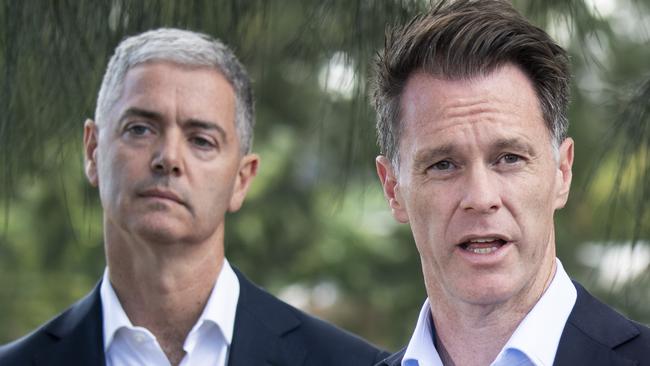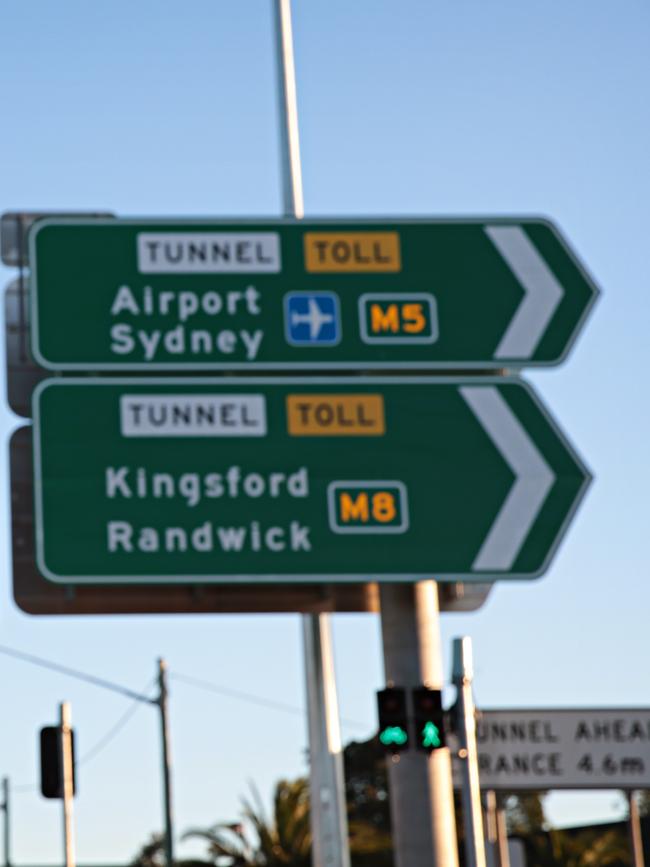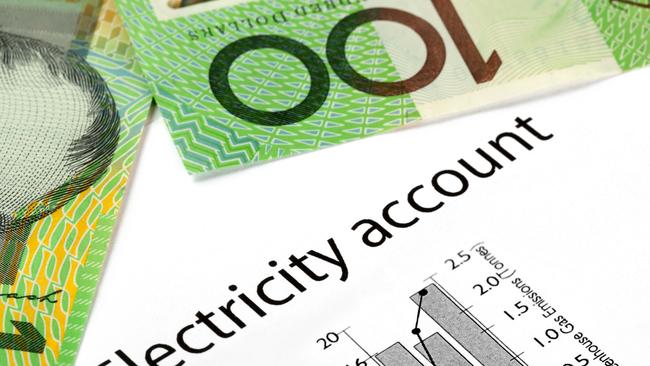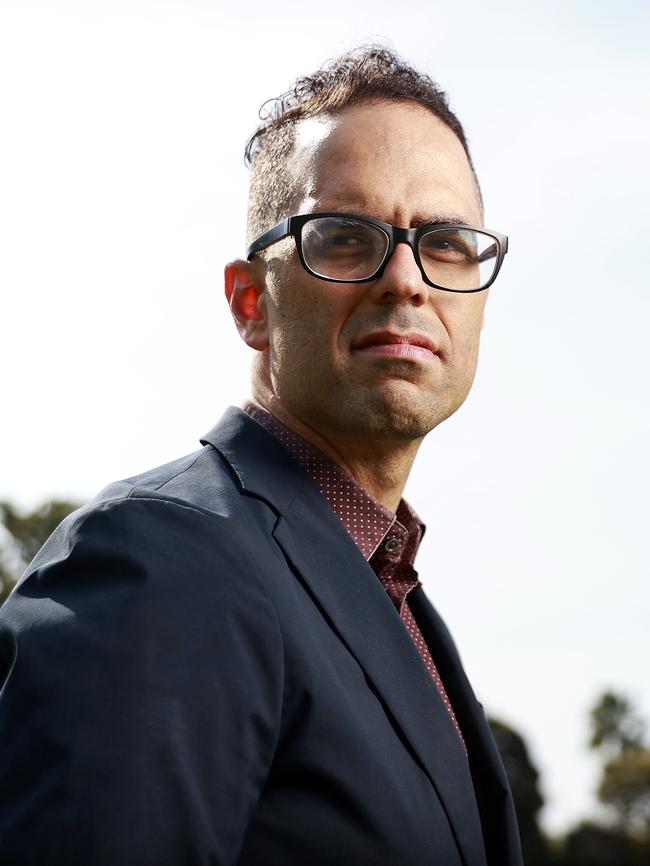720k motorists to benefit from Minns government toll cap of $60
A toll cap will offer a cash rebate to an estimated 720,000 motorists — with no driver to be charged more than $60 a week. Find out which suburbs will receive the most rebates.
NSW
Don't miss out on the headlines from NSW. Followed categories will be added to My News.
A toll cap to kick off next year will offer a cash rebate to almost three quarters of a million motorists, with some residents to pocket an average $500 a year under the Minns government scheme.
The Sunday Telegraph revealed during the March state election that Labor would introduce a $60-a-week toll cap to provide cost-of-living relief to about 51,000 road users, at a cost to government of $150 million.
It can now be revealed the NSW Budget will show the cap will cost more than $560 million over the two-year period, with Treasury analysis calculating an estimated 720,000 toll users will qualify for a rebate — 14 times more than first estimated.
And exclusive Treasury analysis has shown the greatest number of beneficiaries will be motorists living in areas of Sydney, with residents in some suburbs receiving an average of $180 to $540 back.
Declaring it a win for struggling families, Roads Minister John Graham said the cap would end the “toll-mania” era, where the focus was more on revenue raising than providing relief for families doing it tough.

“Motorists, particularly in Western Sydney where access to public transport alternatives have been more limited than in other parts of the city, have been crying out for relief from the ever-rising burden of tolls on the family budget,” he said.
“We know people are doing it tough and ‘toll mania’ is one of the most unpopular legacies of the former government. The Minns Labor government’s $60 toll cap is part of ending an era in which government placed more emphasis on growing toll revenue than on helping people get around Sydney without breaking the bank.”

Under the scheme, motorists from January 1 will be able to claim back any money above $60 they have spent on tolls in a week via a quarterly refund from Service NSW.
A Treasury breakdown of suburbs set to benefit most from the cap show Kellyville, Baulkham Hills, Greystanes, Moorebank and Blacktown have the greatest number of residents with toll accounts who will be entitled to relief.
In Kellyville, just over 13,000 motorists are deemed to be eligible for a cap benefit next year, with Treasury calculating the average entitlement for each motorist to be $399.
Almost 11,000 motorists in Baulkham Hills are expected to received an average rebate of $479, with 10,300 drivers in Greystanes will get $453.
In Moorebank, 10,200 motorists will receive about $338, while more almost 9500 in Blacktown to get $440.
Of the top 30 postcodes with the greatest number of motorists believed to be eligible of an entitlement, those in Glendenning will receive the biggest cash back — about $540.
The increase in the number of toll-users who will now receive cash back follows detailed modelling undertaken by Treasury and Transport for NSW.
In the lead-up to the March state election, Labor had relied on the calculations of the Parliamentary Budget Office, which came up more conservative figures.
The government will also proceed with toll rebates for heavy vehicles using the M5 East and M8 tunnels, with implementation on track for January 1.
Trucks will receive a rebate for a third of their trip travelled on the M5 East and M8, costing $54 million over the two-year trial.
The relief comes amid an independent review of toll roads being led by Professor
Allan Fels AO and Dr David Cousins AM.
They will make recommendations to the Minns government on how to make the system safer, fairer and more efficient.
POWER BILL RELIEF AS REBATES GET $100M
Families struggling to pay their power bills could receive up to $350 in relief, with the Minns government injecting an extra $100m towards its rebate schemes.
The Sunday Telegraph can reveal Tuesday’s budget will include energy bill relief for eligible concession card-holders, including low-income households, pensioners, self-funded retirees, veterans, families and people with certain medical conditions.
To come into effect from July next year, the Low Income Household Rebate and Medical Energy Rebate will increase by more than 20 per cent from $285 to $350 — the biggest increase in more than a decade.

The Family Energy Rebate will rise by almost 40 per cent from $180 to $250 for those receiving the full rate.
For those on a partial rate — who also receive the Low Income Household Rebate — the assistance will rise from $20 to $30.
The Seniors Energy Rebate will also increase from $200 to $250, while Life Support Rebate will rise for each piece of equipment by 22 per cent.
Energy Minister Penny Sharpe said the increases would make a “material difference” and fulfil a Labor election commitment to provide relief to families and other households finding it difficult to pay their energy bills.
$3BN FOR PUBLIC SECTOR PAY RISES
A $3.6bn “fighting fund” will be established by the Minns government to cover the wage rises of nurses, teachers and other frontline workers after lifting the controversial wages cap.
The establishment of the Essential Services Fund (ESF) signals the total cost of wage increases will likely exceed $4bn over four years.
The government has declared the fund will support “long term-growth in pay” for the public sector to help retain staff while tackling critical shortages.

It will exclude the $1.4bn the government has declared will be found from cutting “bureaucratic waste” to go towards the historic teacher wage rise.
To be unveiled in Tuesday’s Budget, the Minns government will sell the Fund as delivering on a key Labor election commitment to reinvest in frontline workers.
It has already argued how the lifting of the “unfair” 2.5 per cent wages cap was necessary to stop critical workers from quitting while attracting more people to the frontline.
The government will declare the fund to be part of a new approach to engaging with the public sector workforce while also reinforcing a commitment to a new bargaining framework and delivering wage growth for thousands of workers.
Treasurer Daniel Mookhey said the fund would help give frontline services the certainty they needed while also allowing them to bolster their ranks.
“Hardworking public servants keep our hospitals, schools, parks and services running,” he said. “The people that keep our state going deserve real wages growth.
“The Essential Services Fund will give them certainty and help bolster their ranks to ensure essential services workers are supported to deliver the best outcome for the people of NSW.”
More than 400,000 public sector employees have been offered a 4.5 per cent pay increase – including 0.5 per cent increase to superannuation – for this financial year.
Along with lifting what it has described as an “unfair” wages cap, the government has also imposed a two-year salary freeze for senior executives and Members of parliament which is believes will save about $250m over four years.
The Industrial Relations Taskforce, led by former Deputy President of the Fair Work Commission, Anna Booth, and former President of the Industrial Relations Commission, Roger Boland, has also been established to fulfil the commitment to a new interest based bargaining framework.
Industrial Relations Minister Sophie Cotsis said: “We have already ended the wages cap. Now, we’re setting aside the funds needed to deliver wages growth for our hardworking teachers, nurses, police officers and other public servants. We’re committed to improving the public sector and ending the recruitment and retention crisis in NSW”.
The State opposition has been critical of the government for having declared wage increases would be paid for from productivity outcomes.
Got a news tip? Email weekendtele@news.com.au





